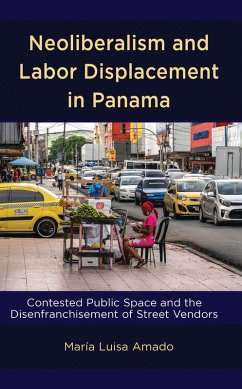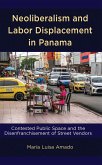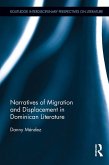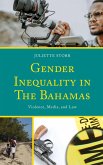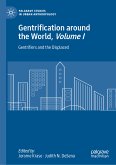Neoliberalism and Labor Displacement in Panama: Contested Public Space and the Disenfranchisement of Street Vendors examines the simultaneous increase of informal sector employment and decreased access to space for Panamanian street vendors, whose creative ventures in public spaces concretize the face of informality in most of the Global South. Through the lived experiences and voices of street traders surveyed over twelve years of field research, this book portrays the long-lasting saga and resistance actions of informalized vendors dislocated from their traditional selling points in Panama City's downtown. Amado argues that neoliberal policies, including privatization, labor deregulation, and market-led urban renewal, inflict a double squeeze on working-class Panamanians by reducing opportunities for stable formal sector employment and restricting access increasingly gentrified areas of Panama City historically used for street vending. This book also sheds light on the commoditization and contested nature of public space, discursively contended by competing views of its functions and who has the right to it.
Bitte wählen Sie Ihr Anliegen aus.
Rechnungen
Retourenschein anfordern
Bestellstatus
Storno

